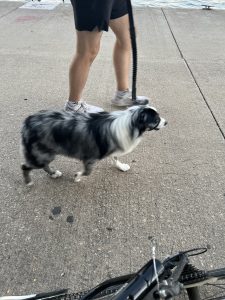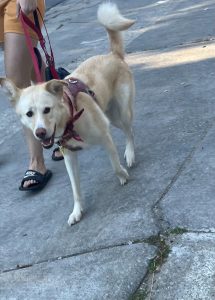The personal injury lawyers of Zneimer & Zneimer P.C. have handled many dog bite injury cases and they almost always involve the Illinois Animal Control Act. A recent appellate decision in Scifo v. Haeger, 2025 IL App (2d) 240531, offers important clarification on the liability of dog owners under the Illinois Animal Control Act regarding the definition of “owner” under the act.
In Scifo, the plaintiff sued on behalf of her two-year-old son, M.S., who suffered a serious facial injury after being bitten by a German Shepherd named Walker in a public park. The dog had been brought to the park by Gary Haeger, who invited the toddler to pet the dog. Tragically, the dog responded by biting the child.
The lawsuit named both Gary and his wife, Sandra Haeger, as defendants, alleging that they were co-owners of the dog. Sandra, however, filed a motion to dismiss the claim against her, arguing that she could not be liable because she was not present at the park and had no control over the dog at the time of the attack.
The trial court sided with Sandra Haeger and dismissed the case against her, citing prior decisions such as Hayes v. Adams and Dzierwa v. Ori, which limited liability under the Animal Control Act in cases where a dog’s legal owner had temporarily relinquished control to a third party.
On appeal, the Illinois Second District Appellate Court reversed the trial court’s decision, holding that Sandra Haeger could still be held liable under the Act even though she was not physically present at the time of the bite.
Under Section 16 of the Illinois Animal Control Act (510 ILCS 5/16), a dog owner is liable for injuries caused by their dog, regardless of negligence, if the injured person was lawfully in the place where the attack occurred and did not provoke the animal. The statute broadly defines “owner” as any person having a property interest in the dog, or someone who keeps or harbors the dog, or knowingly permits the dog on the premises they occupy.
The court emphasized that Sandra was a co-owner of the dog, and there was no evidence that she had relinquished her property interest, care, or control to her husband. The Court attempted to distinguish the vet clinic scenario in Hayes or the house-sitter situation in Dzierwa, by concluding that Sandra remained a legal owner at all times. As the court stated:
“That Gary was exercising his right to care, custody, and control of Walker did not, as a matter of law, in any way interfere with or reduce Sandra’s right to the same.” (¶ 14)
Accordingly, the court found that the mere absence of a co-owner at the time of the attack does not shield that co-owner from liability under the Act.
This ruling affirms a crucial point: co-ownership creates shared legal responsibility. Dog bite victims in Chicago—and across Illinois—need to know that every individual with a legal property interest in a dog can be held accountable under the law, not just the person holding the leash.
However, Scifo leaves unanswered questions. For example, what if a dog walking service walks your dog and the dog bites someone? Would there be liability on the part of the owner? Additionally, in Hayes and Dzierwa, the owners of the dogs were still owners even though other people temporarily had custody. It is still unclear under what circumstances the owner of a dog will be held liable when someone else is “holding the leash” when the dog bites someone.
The Chicago dog bite lawyers of Zneimer & Zneimer P.C. provides free consultations if you or a family member is ever a victim of a dog bite.
 Chicago Accident Lawyer Blog
Chicago Accident Lawyer Blog



